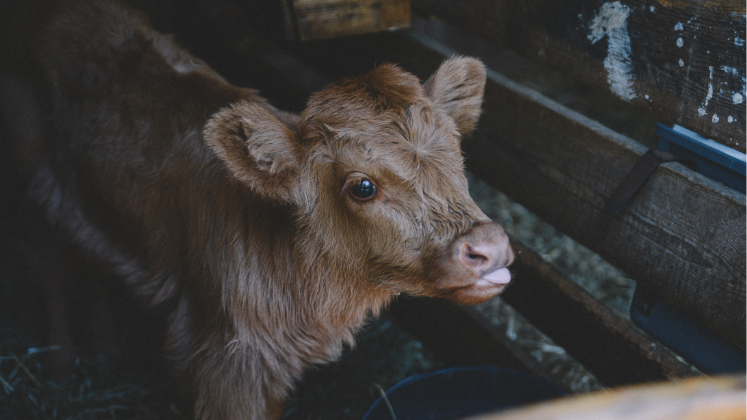In this post, PhD student Daniele Pollicino reports on the themes and discussions from the ‘Workshop on Behaviour, Wellbeing and the Environment’, which took place online in November 2021. The discussions are all available to watch on YouTube here.
The 26th Conference of the Parties (COP26) is now over. Were you among the dreamers who thought this one COP could spark immediate climate action? Or were you among the sceptics who doubted one single event could turn things around? In any case, the takeaway from Glasgow is clear: Let us get to work! The only question is how to do that.
Among the topics discussed, the Workshop on Behaviour, Wellbeing and the Environment tried to give answers to such a question. On the afternoons of 4 and 5 November 2021, the online workshop explored the interdependencies between how we feel and what we do, and their links to the natural world – reciprocal relationships which everyone agreed are currently understudied and underappreciated.

Day 1
Professor Andrew Oswald delighted us by opening the session on Day 1 and stimulating a general dialogue around the idea of how the economics-psychology community may help the world in a practical way. He reminded us that, to research how to change people’s behaviour, a good place to begin is often “to understand that we are not normal, ladies and gentlemen!”.
Dr Mirko Moro provided a very detailed analysis of why economists should think critically about the assumptions in subjective wellbeing models. He challenged us to question methodological pitfalls and not to necessarily privilege a particular methodology over another – because there is really no best method.
My years of neuroscientific research may have me biased, yet I believe Professor Simone Kühn’s talk was certainly a highlight of the workshop. By exploiting the power of Google street images, she found that the prolonged view of the sky over their lifetime was the factor driving changes on the prefrontal cortex grey matter volume in children – an important area for executive functions related to working memory and cognitive control.
Dr Marie Briguglio highlighted how qualitative evidence can give us a richer understanding of what people believe contributes to and detracts from their wellbeing from an environmental standpoint. One other aspect of Dr Briguglio’s research that intrigued me greatly was the shift in focus on blue spaces – wellbeing effects of the sea and well managed ecosystem-based fisheries.
Dr Tobias Brosch challenged us not to oversimplify emotions – “there are no magic buttons”. In his research, he investigates how to leverage the force of emotions to promote pro-environmental behaviours. He discovered that people not only feel better when committing pro-environmental behaviours – direct warm glow – but also that they do so when seeing someone doing good for the environment – vicarious warm glow.
To close up Day 1, Dr George MacKerron showcased some of the original features he is considering for the development of Mappiness 2.0, which has become the world’s largest geo-located Experience Sampling Method study, mapping happiness across space in the UK and providing evidence on environmental impacts on wellbeing.
Day 2
On Day 2, we had the pleasure of starting off the session with a spectacular panel discussion moderated by Professor Liam Delaney. The four panellists talked us through recent research that looks at the co-benefits of climate action for health and wellbeing. Discussing the trade-off between short-run wellbeing and long-run environmental sustainability, they rendered a rather nuanced picture.
To avoid harmful backfiring effects, Dr MacKerron reasoned policymakers should ask for “painless” changes that people could accept. On top of that, Professor Sander van der Linden clarified the difference between perception and experience by describing studies claiming that once people settle in with the new behaviour, i.e., becoming vegetarians, new positive aspects may be appreciated and barriers to change may break. Professor Susana Ferreira remarked the importance of “believable valuation”, stressing the need for pricing things properly and learning to make environmental taxes acceptable. As her personal message to the people working at COP26, Professor Lorraine Whitmarsh talked about being more pragmatic and leaving some old narratives out of the conversation, e.g., no more images of polar bears. Today, it is essential to get their attention by constructing more compelling arguments and by framing them around what people care about, their values, their concerns and needs.
Following up, Dr Kristian Nielsen made a very compelling case for impact-focused environmental psychology. In simple terms, he debated whether the psychology community still has its “eyes on the prize”. Dr Nielsen argued that by following a new set of research rules, then there might be the opportunity to have an impact on global scientific initiatives to mitigate climate change. How can we better understand and measure changes in social acceptance of public policies?
Dr Geertje Schuitema made very clear that social acceptance is not a static concept, but a very dynamic one; it can change, and it can be influenced indeed. Trust – in experts and leaders – and negative emotions are the strongest predictors to acceptance that she finds in her research.
Next, Dr Valentina Carfora and Dr Christina Gravert talked about issues related to our food system. Quoting one of the participants’ comments in the chat: “spoiler alert: our food system is a bigger problem than fossil fuels”. Dr Carfora illustrated her research on promoting sustainable eating through behavioural interventions that rely on tailored messages delivered to participants via chatbots. These interventions can reach many people, they are relatively simple and low-cost to implement, but can still lead to long-term change in people’s food choices. Dr Gravert then took the stage and presented her work on reducing food waste in supermarket purchases. The results of her field experiments are not in-line with rational overbuying as she finds that simple discounts and nudges can greatly affect the number of products that consumers buy. Oh, and I bet you will not guess correctly which item supermarkets love to let researchers use for these types of field experiments! (I want to help you – it is green and its name rhymes with “number”).
At the end of the workshop, participants were asked to fill out a Mentimeter poll.

I believe both days were very eye-opening, and thought-provoking. The overall theme seemed to work extremely well, and the Workshop made all of us “re-discover” the great community of people behind research in these areas – especially after such a long time working in a quite isolated way during the pandemic.
See you all very soon!
Daniele Pollicino
About the Workshop on Behaviour, Wellbeing and the Environment 2021
This year’s workshop was co-hosted by members of the Behavioural Science and Policy group in the Geary Institute for Public Policy at University College Dublin (Dr Kate Laffan and Dr Leonhard Lades) and the Department of Psychological and Behavioural Science at the London School of Economics and Political Science (Dr Ganga Shreedhar, Dr Christian Krekel and Daniele Pollicino); it was funded by the National University of Ireland Grant Scheme for Early Career Academics awarded to Dr Laffan. All of the sessions were recorded are available to watch on YouTube here.
Notes:
- The views expressed in this post are of the author and not the Department of Psychological and Behavioural Science nor the London School of Economics and Political Science (LSE).
- Images have been provided by the author.




